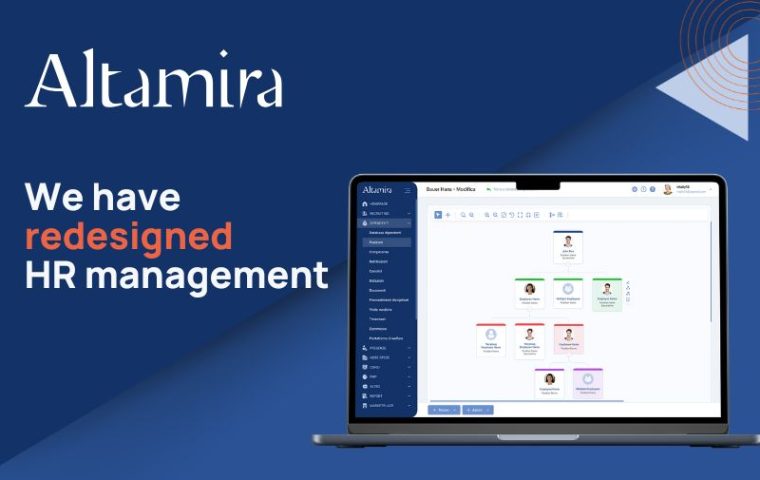Identifying trends in the HR sector is a valuable exercise for any company wishing to remain competitive in the job market.
As the end of the year approaches, many websites, magazines, and HR experts have tried to identify the trends that will most influence the HR sector in the near future.
But the large volume of sometimes drastically divergent opinions can sometimes generate more confusion than clarity. To shed some light and provide a picture as complete and reliable as possible, we have analyzed 14 authoritative sources and compiled a ranking of the most popular HR trends for 2023. We have also indicated in brackets how many articles have promoted each of them.
2023 will continue to see companies and HR offices grappling with the huge change brought about by the spread of hybrid work. This new way of working has brought enormous benefits to employees and companies, but also critical issues that require addressing and strategic changes to be implemented. 2023 will also see an improved focus on the employee that will translate into increased attention to training and mental well-being.
To delve deeper into the topic, continue reading to the bottom of this article, where you’ll find a summary of the 14 sources we have analyzed.
Top 15 HR Trends for 2023
- Hybrid work (10). Born as a response to the pandemic, hybrid work has shown clear advantages in both employee retention and talent attraction, and the 2022 productivity reports are also reassuring. During the past year, hybrid work has become a consolidated reality, proving it not to be a passing fad. To remain competitive, companies will need to ensure flexibility and provide greater structure to the organizational model by reconsidering the best use of physical spaces, identifying new suitable metrics, and solving issues such as proximity bias. Important meetings, for instance, will have to be managed in a fully hybrid way to allow everyone to participate on an equal footing, regardless of their physical location. The corporate culture itself will also need to be redefined.
- Soft skill development (8). In 2023, companies will launch ambitious reskilling and upskilling programs to equip their workforce with the necessary skills – soft skills in particular – to cope with a rapidly changing workplace. Training will bring many benefits: it will identify new leaders within the company, increase employees’ versatility and performance, as well as corporate’s retention and attraction rates. This way, companies will be able to build the necessary skills in-house without having to invest in recruiting. Training delivery will also change with the increased preference for micro-learning and micro-mentoring, and a general tendency to integrate training into everyday work.
- Employee welfare (7). Caring for the physical, mental as well as financial well-being of employees will be one of the main priorities for companies in the coming future. After two years of the pandemic, many employees have shown signs of stress and burnout, starting with HR professionals themselves. The structure of corporate benefits will therefore have to be reconsidered, keeping the employees’ total well-being in mind and adopting an increasingly personalized approach. Companies can also expect economic benefits among the many positive outcomes, as researchers have shown how reducing employee stress and burnout leads to increased productivity.
- Appreciation of internal employees (6). Considering the growing difficulties in finding new talents, companies will inevitably seek to enhance their internal profiles. This will be done by adopting a solid staff engagement strategy that can lead to a positive employee experience, and by mapping out skills and career paths to allow each employee to reach their full potential. The creation of training paths to develop new leadership figures will also be crucial.
- Diversity, Inclusion & Belonging (5). The issues of diversity and inclusiveness are increasingly crucial for corporate success as the workforce, partly due to the spread of remote work, becomes increasingly international. Diversity and inclusion will therefore need to be placed at the core of the HR strategy, from recruitment to onboarding. In addition, 2023 will also see an increased focus on belonging through the creation of a strong culture of belonging that can lead to higher engagement and better job performance.
- HR Analytics (5). Being able to track and analyze multiple types of data is even more critical when managing a workforce that is no longer physically present in the office at all times. In the coming years, companies will make sophisticated use of people analytics, using them to inform their decisions. The dissemination of predictive tools based on Artificial Intelligence will also continue. Finally, companies will need to hire or train people with the right skills to organize and interpret the growing amount of employee data.
- HRM platforms (5). In 2023, companies will continue to lean toward a complete platform for HR management, preferring them over specialized products that require integration. The winning systems will be predominantly cloud-based and equipped with native apps to allow access from anywhere. Conversely, on-premise setups will be slowly phased out as they proved incompatible with hybrid work. Multinationals and larger companies will tend to choose artificial intelligence systems, especially for recruiting.
- Automation (4). The use of technology in the HR department will become more and more sophisticated. In particular, the adoption of automation for the management of numerous processes, such as recruitment, onboarding, or presence detection, will reduce the workload on HR professionals, allowing them to focus on more strategic issues. Compliance activities will also be largely automated. To take full advantage of the many opportunities offered by modern HR software, the HR department will need to be trained, and the figure of digital HR will have to be introduced.
- Corporate culture and corporate responsibility (4). After the organizational changes that led to the spread of hybrid work, the corporate culture will also need to be modernized. Workers, especially from younger generations, are increasingly attentive to ethical and sustainability concerns. Their expectation is to work for a company capable of taking a stand on the most relevant issues and that provides reassurance and certainty to its employees. Companies acting on this topic will thus gain a competitive edge in terms of attraction and retention.
- Remote work (4). Fully remote work has grown and will continue to grow in the coming years, despite many companies pushing for a hybrid model. Remote work offers many benefits for employees in terms of work-life balance, although attention needs to be paid to the issue of digital disconnection. The main risk is for employees to feel the need to be available 24/7, to the detriment of their personal life. It is thus the responsibility of the HR office to draft a rigorous policy to safeguard their mental well-being.
- Employer Branding (3). Recruitment will increasingly become akin to marketing, with companies investing more and more in the employer branding strategy by acquiring the right technology to support it, and by building a strong presence on social networks. To execute the branding strategy, the HR department will have to develop the necessary skills to manage the career site and the candidate communities. The initial investment will however be mitigated by reduced search and selection costs and improved outcomes.
- Feedback (1). To make the right changes, the HR team will need to listen to the employees’ voices once again. Use of surveys and systematic feedback collection are expected to increase as they provide crucial data to structure benefits, draft new hybrid work policies, redefine corporate culture, identify new KPIs, and so on. Equally important will be the company’s ability to act on the feedback received without limiting its action to passive listening.
- Heterogeneous workforce (2). The workforce of the future will be increasingly heterogeneous, not only from a generational standpoint (in 2023, Gen Z will enter a predominately Millennial workforce) but also because of the coexistence of face-to-face, hybrid, and full-time remote workers. It is the HR department that will be responsible for engaging and motivating employees, as well as creating a collaborative climate.
- Entry into the metaverse (2). In 2023, companies will start experimenting with the use of the metaverse as a virtual office, a completely redefinable space that will shorten the distances between employees working from home and at the office. The roll-out will be led by the HR department, which will have to deal with little-known issues such as virtual and augmented reality.
- Remuneration (2). Due to high inflation, many companies will need to revise their remuneration policies. Not only by giving employees more substantial increases than usual, but also by implementing variable pay for those without it and by reviewing benefits packages to better address current issues.
Sources: Accountor, AIHR, Avansel, Connecteam, Draup, Empxtrack, HowNow, Human Resource Webinars, Paycom, Safeguard Global, SnapComms, The Times of India, Timely, Visier
Copyright: ©metamorworks/Adobe Stock














